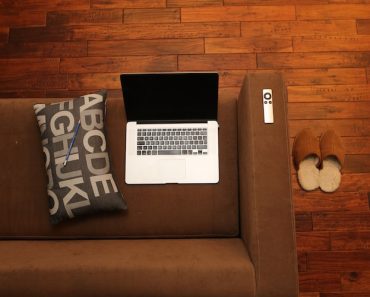It’s no secret that the opportunity to take a vacation is like a dream come true.
Unfortunately, even those that have the opportunity to take time off of work and other responsibilities don’t always use it.
The fear of missing out is partly to blame: how can you keep an eye on projects, and the people working on them, if you’re not there? How will you stay up-to-date on current events? What happens if there’s an emergency?
It is also tempting to avoid taking a vacation when you are in a really good place at work and/or in life. Things are just fine the way they are—why disrupt the flow?
Actually, not taking a vacation is a lot worse for your overall health than you thought. Resting has almost too many health benefits to count, and chronic stress poses the most serious of dangers to your well-being no matter your age, gender or how many hours you spend working.
Here are the reasons going on vacation is good for your health.
Your body needs a break from all your hard work
Most of the time, working hard isn’t a bad thing at all. Being productive, reaching for your goals and earning your expertise in your field are all essential parts of building a successful career. That doesn’t mean you’re a superhero, though; your body can only take so much stress before it burns out.
Those who spend most of their time working tend to treat long-term stress as nothing more than a side effect of hard work. This isn’t untrue; you just can’t underestimate the ways constantly being stressed can actually hurt you physically.
Stress over long periods of time completely ruins your body. It hurts your heart, messes with your hormones and throws off your digestive system. It can even have drastic effects on reproductive health.
You may be working hard five, six, maybe even seven days a week, but that is all the more reason to reward yourself with a vacation every once in awhile. It is literally, physically, good for you.
By taking time off work, whether you just stay home or actually do some traveling, you are slowly, but effectively, letting your body heal. Stress takes a major physical toll on your body’s functional systems. If you want to stay physically healthy, let yourself have some time off. You deserve that. Your body does … and so does your brain.
Your brain deserves to rest after so much stress
You know that burned out, overloaded feeling you get after completing a big project or finally reading through a bunch of important documents? That’s your brain talking. More importantly, it’s your brain telling you it’s tired and needs a nap. Well … sort of.
It’s not just the physical symptoms of stress that worry health care professionals. Stress also has a major impact on the way we think and behave, which can be dangerous when we keep ourselves firmly planted in a work setting without taking any time away.
Chronic stress is your brain’s worst enemy. Being consistently stressed over long periods of time makes you forgetful and moody. It can actually mess with the balance of chemicals in your brain, which can lead to depression. Ever wonder why you cry so much when you are stressed? That’s why.
Again, there isn’t anything wrong with hard work. You also need to realize that if you continue to work through your mental fatigue, you are going to end up doing yourself much more harm than good in the long run. Your brain needs rest, and not just a day or a weekend every once in awhile.
Taking some time off of work, no matter what you do while you are away, will give your brain the time it needs to recuperate. Don’t try to cheat and do work while you’re away from the office, even if you’re nice and comfortable laying on a beach somewhere. Your brain, not just your body, needs the rest.
When you come back, you’ll be more energized and focused
Use your vacation days; they are there for a reason. You can do pretty much anything you want with them (except using them to do more work) as long as you stay out of the office and off your work laptop.
Figure out how much vacation time you can afford to use and just do it. Don’t even give yourself enough time to talk yourself out of it. It doesn’t matter how many days you take off: one, two, or fourteen will all have a similar effect on you, and you can probably already guess what it is.
Even if you leave work at the start of vacation feeling unfocused, overwhelmed and completely burned out, if nothing else, you will at least return to work at your vacation’s end with an increased ability to focus and push through even the most grueling tasks.
When you do return from your vacation, you’ll be much more productive and should have the energy and focus to get things done. Even if you are dreading the end of your vacation a little bit, don’t worry: you are more ready to get back to a normal routine than you think you are.
The key to any successful vacation away from work is to do something you are going to enjoy. You aren’t going to forget everything you have learned or get worse at all the skills you have developed just because you go without using them for a few days. When you start to feel too overwhelmed to keep working, you are long past overdue for time off.
Don’t let the fear of missing out or all the excuses in the world stand between you and your time off. Taking a vacation is much better for your health in the long-term than working yourself sick will ever be.
Never wait until you are drained, burned out and checked out to decide to book your next vacation. Make it part of your annual “routine” and give yourself something to look forward to a few times a year.







